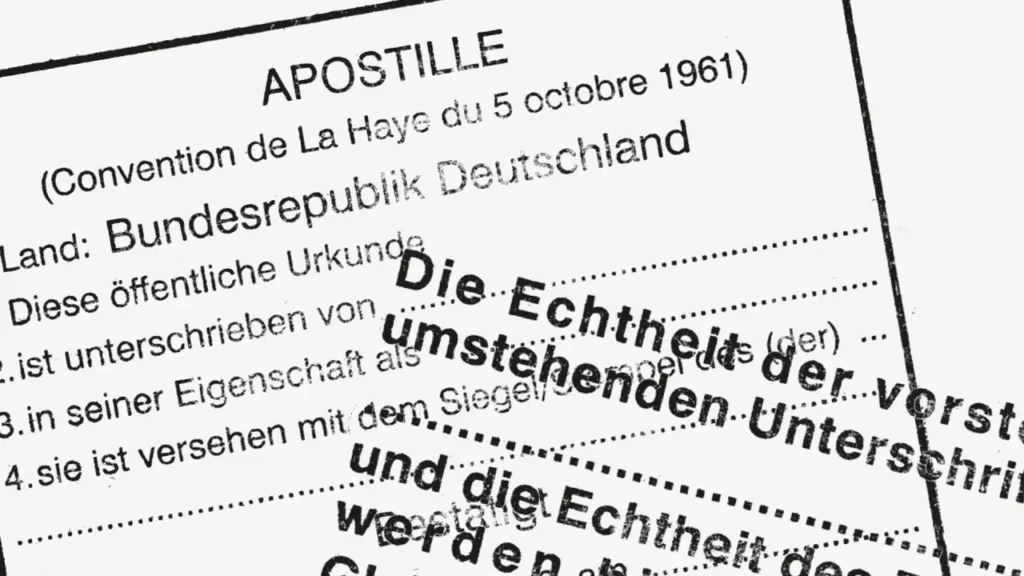
How Translators Avoid and Resolve Conflicts with Clients
Language professionals are bridge builders between cultures. They translate contracts, technical texts, and speeches, ensuring that communication across language barriers is successful. In practice, however, translators and interpreters often face challenges that go beyond pure language skills. Misunderstandings or conflicts arise time and again, which affect both the quality of the work and the relationship with clients. A closer look at typical pitfalls shows how these arise – and how many of them can be avoided from the outset.
When the Source Material already Poses Difficulties
Not every translation starts with a clean Word document. Language professionals often receive PowerPoint presentations, scanned PDFs, or even handwritten notes. While well-structured files enable rapid processing, messy templates cause considerable additional work. Texts from images or scans sometimes have to be laboriously transcribed, which costs time and increases the error rate.
For translators, this means walking a tightrope: on the one hand, they want to support their clients, but on the other hand, additional work steps are not automatically part of the agreed-upon order. That is why many point out that the source material is decisive for the time and cost framework. So if you work with unusual file formats, you should be prepared for additional costs or longer processing times – a point that should definitely be clarified in advance.
Translation Memories: Helpful, but not Harmless
Another topic that repeatedly sparks debate is translation memories (TM). These are digital databases that store previously translated text segments, helping to maintain consistent terminology and make processes more efficient. They are a valuable tool for translators – and at the same time a piece of intellectual property.
Conflicts arise when clients assume that the database automatically belongs to them once they have paid for the translation. From the translator’s point of view, this is problematic: a TM is like a personal library that has been built up over many years. It contains knowledge that is not related to a single job, but to the entire professional experience. That is why many argue that the use or release of TMs should be clearly regulated and, if necessary, remunerated separately. Without such agreements, there is a risk of misunderstandings that can strain the working relationship.
Feedback that Helps You Move forward - and Feedback that Holds You back
No translator works in a vacuum: feedback is important for tailoring texts precisely to the target audience. However, the way criticism is expressed determines whether it is perceived as helpful or hurtful. Sweeping statements such as “This is all wrong” are frustrating and unproductive. They do not convey where the problem lies or how it can be solved.
Translators would prefer specific feedback instead: Should the text be more formal? Is the tone too technical? Or have certain technical terms been overlooked? Feedback like this not only improves quality, but also strengthens trust between both sides. A respectful dialogue that recognizes professional expertise plays a key role in avoiding conflicts and building a lasting working relationship.
Money Matters: Security for both Sides
Hardly any other topic is as controversial as payment. For freelance language professionals, punctual payments are vital, as they have neither fixed salaries nor the reserves of large companies. This is particularly difficult in international projects: while short payment terms are common in Germany, other countries consider 30 or even 45 days to be standard. Added to this are problems with transaction fees, some of which remain unresolved.
Translators therefore demand clear agreements before the start of a project: When will payment be made, in which currency, and by what means? When working with new clients, many translators require advance payment or partial payments in order to minimize risks. Such arrangements are not an expression of mistrust, but are simply necessary to ensure planning security and to be able to carry out their work professionally.
Why Quality has its Price
Pricing is also a frequent point of contention. Many clients base their pricing on word count, forgetting that professional translations involve much more than that: specialist research, stylistic refinement, and the responsibility to ensure that content is reproduced accurately from a legal or technical perspective.
For translators, pressure to offer dumping prices not only means lower income, but also a loss of professionalism. Those who offer their work too cheaply are often unable to apply the necessary care – a disadvantage that ultimately also affects customers. Transparent offers that break down all services help to avoid misunderstandings. They make it clear that quality has its price – and that fair payment pays off in the long term.
Interpreting: Working in Precarious Situations
While translators work quietly at their desks, interpreters are in live mode. They have to translate what is said into another language without delay – there is no time to correct mistakes. The pressure is enormous, and expectations are high.
A common problem is that clients underestimate the amount of work involved. Every conference and every meeting requires intensive preparation: researching topics, working on terminology, and mental preparation. If the material is not provided in good time, the quality inevitably suffers. Added to this are burdens such as spontaneous appointments at the weekend, constant availability, or long journeys, which are often not adequately compensated. Many interpreters therefore demand clear conditions: timely information, fair working hours, and appropriate compensation for additional burdens. Only in this way can the quality that clients expect be guaranteed.
Self-Protection by Saying “No”
One thing that many language professionals learn only with experience is that a clear “no” is one of the most important tools in their everyday work. Not every request is legitimate, realistic, or ethically acceptable. However, the inhibition threshold for rejecting jobs is particularly high among young professionals.
Reality shows that sometimes saying no is the only way to ensure quality and integrity. This includes rush orders that cannot be completed within the required time frame, or endless rounds of corrections that go far beyond what was agreed upon. Requests that fall into the realm of manipulation are particularly sensitive – such as retroactively changing names in official documents or reinterpreting job titles. This is not just a matter of workload, but also of legal and ethical boundaries. A professional “no” is therefore not a sign of unwillingness, but of responsibility.
Conclusion
Whether translating or interpreting, conflicts often arise less from the work itself than from a lack of communication and unrealistic expectations. Anyone who considers the perspective of language professionals will quickly realize that good cooperation is based on clear rules, fair payment, and mutual respect. Clients who take these points seriously not only benefit from smooth processes, but above all from high-quality results – and language professionals can do their work sustainably and to the highest standard.

Between Deadlines and Diplomacy


Why localization is more than translation

60th Theodor Heuss Prize


The invisible danger: digital translation fraud

Planned revision of the JVEG

Freelancer visa in the UAE

Emigration to Dubai

Cuts and restrictions – Interpreters and Translators in Crisis

Building bridges at the Wilhelm Bock Prize

Funding Programs for Language Mediators in Healthcare

Inclusion in Education: ReSartus Enables International Exchange

The Future of Remote Interpreting – Virtual Conferences


Industry-specific challenges in the translation industry

The Role of AI in the Translation Industry

Hiiios – The video interpreting service by ReSartus

Emigrating from Germany

ReSartus supports the 43rd Erlangen Poetry Festival

Preparations for the COP 28 World Climate Conference

Between Deadlines and Diplomacy


